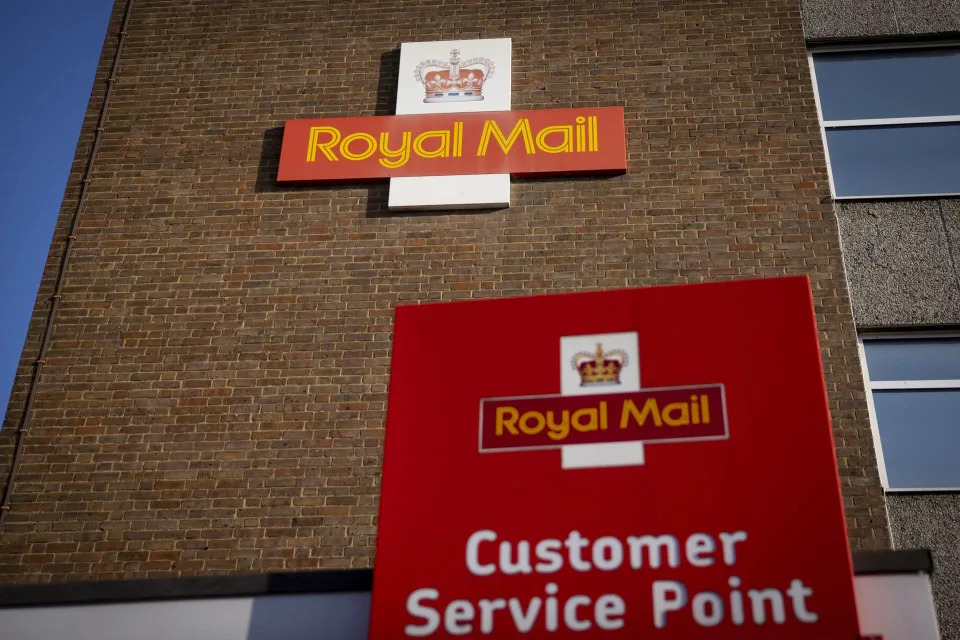London – More than 100,000 workers of the British postal company Royal Mail supported a strike this Friday to demand wage increases in line with inflation, the last of the numerous strikes that the United Kingdom has suffered this summer before the increase in the cost of living.
This is the first of three strikes planned by the staff of the former state company, privatized in 2015, which will again suspend its activity on August 31, as well as on September 8 and 9.
During those days, conventional mail will not be delivered and some package deliveries will be delayed, said Royal Mail, which assured that it will continue to deliver medical prescriptions and fulfill special shipments.
“Postal workers are being pushed over the edge,” said Dave Ward, general secretary of the CWU union, whose negotiators, after three months of dialogue with the company, have rejected a salary increase of around 5.5%, argue that inflation exceeded 10% in July.
SUMMER OF DISCONTENT
The Royal Mail strike is one of many strikes that have been called by workers from various sectors in the United Kingdom, in the face of a cost-of-living crisis that has taken Britons back to the historic “winter of discontent” three decades ago, when the The country was paralyzed by protests against limits on wage increases imposed by Labor Prime Minister James Callaghan.
Former state-owned communications firm BT, London Underground and rail operators, as well as stevedores at the Felixstowe container port, among others, have joined walkouts this summer, while unions representing teachers, nurses and police officers, among others. others have advanced that they are studying calling protest actions after receiving increases of between 4% and 5%.
“Prices of everything are skyrocketing, people have to work harder and do overtime,” Hannah Carrol, portfolio manager at Royal Mail, told the BBC.
Despite widespread discontent, few anticipate that the protests will eventually lead to a general strike. The UK hasn’t seen a general strike since 1926. Only the national federation of trade unions, the TUC, has the power to call one and has so far cooled that possibility.
The main trigger of the crisis is the escalation of energy prices.
The sector regulator, Ofgem, announced today that the maximum price that energy companies will be able to charge households per year from October 1 has been set at 3,549 pounds (4,202 euros) compared to the current price of 1,971 pounds (2,325 euros). ).
The 80% energy increase responds to the increase in wholesale gas prices globally as economies reactivate after the pandemic and also due to the war in Ukraine.
Rising energy prices are expected to further push up year-on-year inflation in the UK, which stands at 10.1% but could reach 13% or more by the end of the year.
To try to curb inflation, the Bank of England recently increased interest rates from 1.25% to 1.75%, although everything indicates that it will raise them even more.
THE REGULATOR ASKS THE GOVERNMENT FOR AN “URGENT RESPONSE”
Ofgem’s chief executive, Jonathan Brearley, urged the next prime minister – Liz Truss or Rishi Sunak, who will succeed Boris Johnson in early September – to adopt “an urgent response to the continuing rise in prices”.
“We know the huge impact this maximum price increase will have on UK homes and the difficult decisions consumers will now have to make. I speak to customers regularly and I know today’s news will be very worrying for many.” the manager to the media.
“The price of energy has reached record levels fueled by an aggressive economic act by the Russian state. It has slowly and deliberately cut off gas supplies to Europe causing damage to our homes, businesses and the economy in general. Ofgem has no choice but to reflect these cost increases in the maximum price”, stressed the manager of Ofgem.

